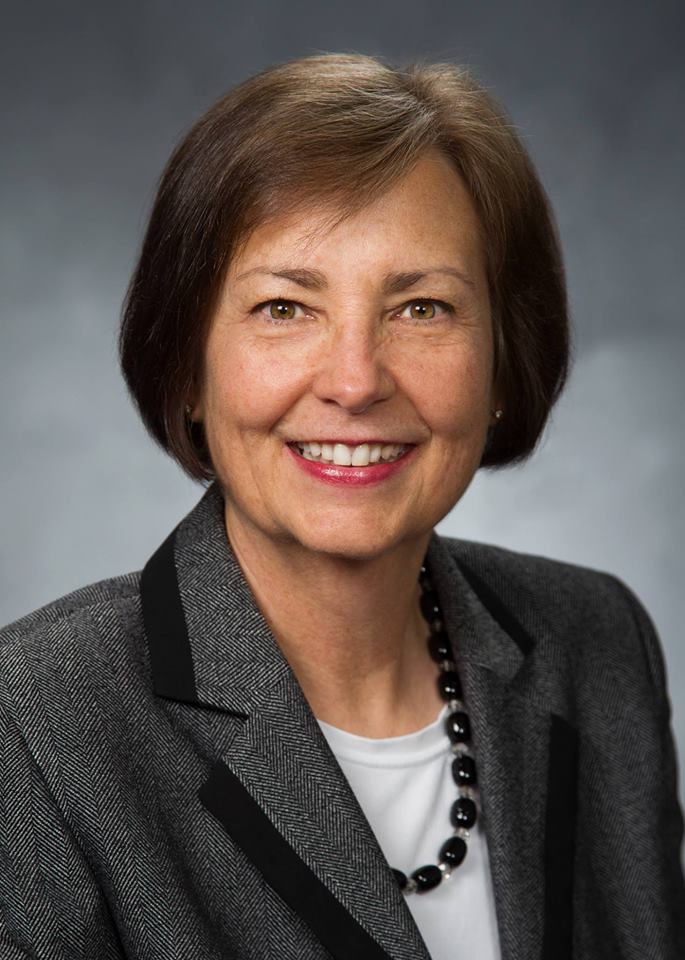
BYU Chair of the Department of Linguistics and English Language Diane Strong-Krause spoke to students about the importance of being anchored in the gospel at BYU’s Devotional June 2.
Strong-Krause used the example of flying kites to solidify this imagery by identifying how students are much like kites because they, too, have a great potential to soar.
However, she also cautioned students by using two examples of follies that prevent people from soaring.
The first was allowing their egos to break free from the anchor of the gospel.
“I also thought about examples of people I have known or read about who with their great capabilities seem to have climbed out of sight, like a kite that has broken off from its string,” Strong-Krause said. “So focused on accomplishing their goals, they become self-promoting, selfish and willing to compromise standards to get what they want. … The ego takes over.”
Strong-Krause said this results because of the natural man.
Another folly Strong-Krause identified was people’s failures to believe they could soar.
“I thought about examples of people with great promise who have not reached their potential, like a kite that can’t seem to get off the ground,” Strong-Krause said. “Sometimes it’s because of fear or they may feel insignificant, discouraged or anxious.”
For Strong-Krause, both the failure to recognize self-potential and the failure to remain anchored in the gospel prevent people from soaring.
“One way to counteract either of these potential pitfalls is to be anchored, as a kite with its string,” Strong-Krause said. “One of the most powerful anchors is to know who you are. You are a spirit daughter or son of our Heavenly Father.”
Strong-Krause counseled that while most of us have known this for years, this knowledge needs to sink deeper.
“In order for this knowledge to provide an anchor for us, we need to not only know this in our minds but also understand it in our hearts and apply it into our lives every day,” Strong-Krause said.
She identified five ways people can apply this knowledge in their lives.
First, when people understand who they really are, they recognize their own potential and are not fearful.
Strong-Krause explained that as kites need a strong opposing wind to soar, people need trials and challenges to help them soar. She cautioned students to never confuse these trails with self-identity.
“The anxiety, the self-doubt and the other beliefs that stem from our experiences, real as they are and important as they are to our mortal existence, are not the true self,” Strong-Krause said.
Second, when people have recognized their own potential, they also recognize the potential of others.
“We understand that all persons are of infinite worth and that we are not superior or inferior to anyone, no matter their circumstances,” Strong-Krause said. “When we see through the eyes of our true self, we see others as who they actually are — spiritual sons and daughters of God. When we understand this, we act differently.”
Third, when people understand who they are, they are willing to forgive.
Strong-Krause proposed that people need to look past conflicts and remember the true identity of themselves as well as that of others.
“What I am suggesting is that we look beyond the behavior,” she said. “It doesn’t mean that we allow others to take advantage of us or that we condone negative behavior, but it does mean that we give others the benefit of the doubt.”
Fourth, when people understand who they are, they give and receive freely.
“Because we understand that we are all spiritual beings, we freely give to others, not for recognition, but because we know we are all connected as part of God’s eternal plan,” Strong-Krause said.
Strong-Krause cited a poem by Emily Dickinson to say while individual acts might not seem important on a larger scale they do make a difference. Strong-Krause then encouraged students to continue to give of themselves freely.
“Probably the most lasting gifts are when we give of ourselves — our time, our talents, our love and our appreciation,” she said.
Fifth, when individuals understand who they are, they realize that God loves them.
Strong-Krause said the knowledge of God’s love helps individuals find peace and perspective in this life.
“We have all probably heard the quote, ‘We are not human beings having a spiritual experience. We are spiritual beings having a human experience,’” she said. “As we gain eternal perspective by connecting to our true selves, each mortal experience can become a spiritual experience.”
Strong-Krause concluded by stating that, like the kite, when individuals are anchored in the gospel they soar.
“Although the words ‘anchor’ and ‘soar’ seem to be in direct contrast to each other, the combination brings great strength,” Strong-Krause said. “I encourage you to soar, to not be afraid to meet your full potential and to seek out and make your unique contribution to humanity.”




